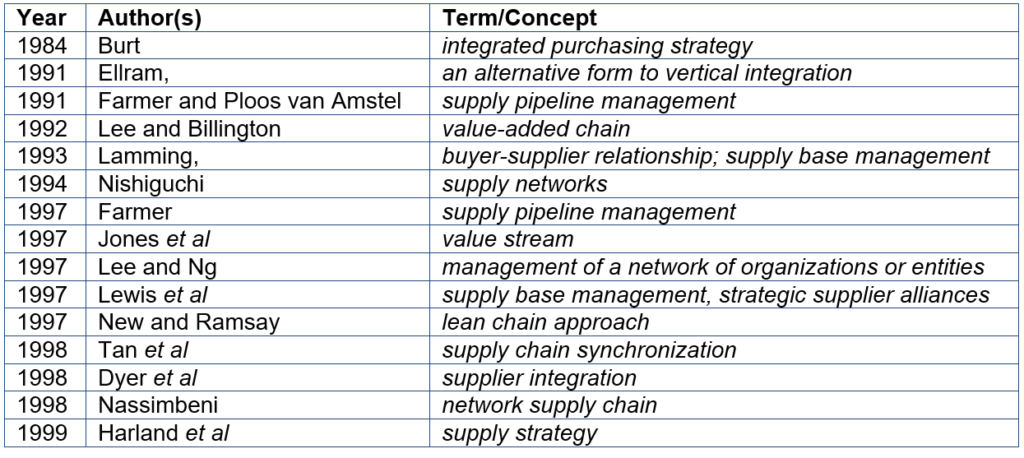Defining “Supply Chain Management”
Definitional diversity, although a complicating factor in a synoptic literature review and academic taxonomy, is not entirely negative. Anderson (1983) claims that diversity within a field deepens the knowledge base; debate enhances a field’s status, as this signifies academic precociousness and industrial relevance. In the case of SCM, diversity illustrates its evolution succinctly. The 1990s and 1980s saw many theorists propose concepts analogous with SCM.
A Chronology of Terms/Concepts Analogous with “Supply Chain Management” (SCM)

Cooper et al (1997) state that “SCM” and “logistics” have been used interchangeably. In 2012, at the time of this writing, “logistics” refers to the part of SCM concerned with creation and improvement of the channelling of information and materials through organizations (in alignment with the definition by Christopher, 2011).
According to Sweeney (2011), definitions of SCM are multiple but agreement sparse. The present author disagrees. Definitions are numerous but vary in emphasis – the majority relate to cross-boundary management and flow. Definitional variety reflects the multifarious antecedents fused into today’s core SCM concepts and philosophies (see 0.5. Figure 1.), not refutation of the conceptual pillar of SCM, i.e. that integrated SCs provide performance benefits (New, 1996).
